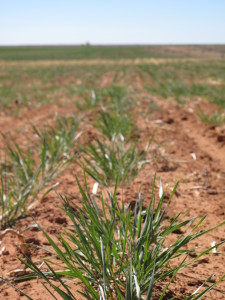**This article is not a substitute for the advice of an attorney.**
Although this week was light on ag law news, but it has been a busy one for me. On Tuesday evening I was able to speak at the Walker County Fall Hay Evaluation in Huntsville. Welcome to the new readers who attended that great event! On Thursday, I headed to Wisconsin and am currently attending the American Agricultural Law Association Conference. It has been a great meeting so far and I look forward to sharing some of the information that I am learning this week once I return to Texas. In the meantime, here are a few ag law related stories in the news this week.
* Texas Proposition 6 Information. In a few days, Texas voters will head to the polls and have the chance to vote on Proposition 6. You may recall from this blog that House Bill 4, passed by the Texas Legislature earlier this year, proposed to move $2 billion from the state’s Rainy Day Fund into a fund that will be managed by the Texas Water Development Board to help provide loans for water infrastructure projects. The Texas Water Development Board has posted a list of Frequently Asked Questions related to Proposition 6, which is intended to provide information to help voters make an informed decision on this issue.
*Lawsuit against Perdue Farms. A proposed class-action lawsuit has been filed in Florida against Perdue Farms. The lawsuit, filed by a Florida consumer and the Humane Society of the United States on behalf of a proposed class of Florida consumers who purchased chicken from Perdue Farms, claims that Perdue Farms is falsely claiming their products to be “humanely raised.” A similar lawsuit was filed previously in New Jersey. [Read article here.]
* New York Passes Cap on Ag Land Values. New York recently enacted a law that will cap assessments of agricultural land values at 2% per year. It is estimated that the base assessment for agricultural land in New York has nearly doubled over the past 7 years, causing significant property tax increases. The purpose of this law is to protect farmers from these type of property tax increases and to allow them to continue farming on their land without being put out of business due to high tax increases. [Read article here.]
*California Law Provides Incentive for Urban Agriculture. A new California law would allow cities and counties to create “incentive zones” in urban areas where landowners who dedicate their vacant property to agricultural use for 5 years or more could obtain a property tax break. Specifically, rather than paying their property tax on the commercial value of the land, landowners in these incentive zones could pay based upon the much lower valuation of agricultural land. The goal of this law is to encourage owners of undeveloped urban land to either engage in farming themselves, or to enter into long-term leases with urban farmers. The law allows cities and counties to decide whether they will participate, but several cities, including San Francisco, have indicated they intend to do so. [Read article here.]













